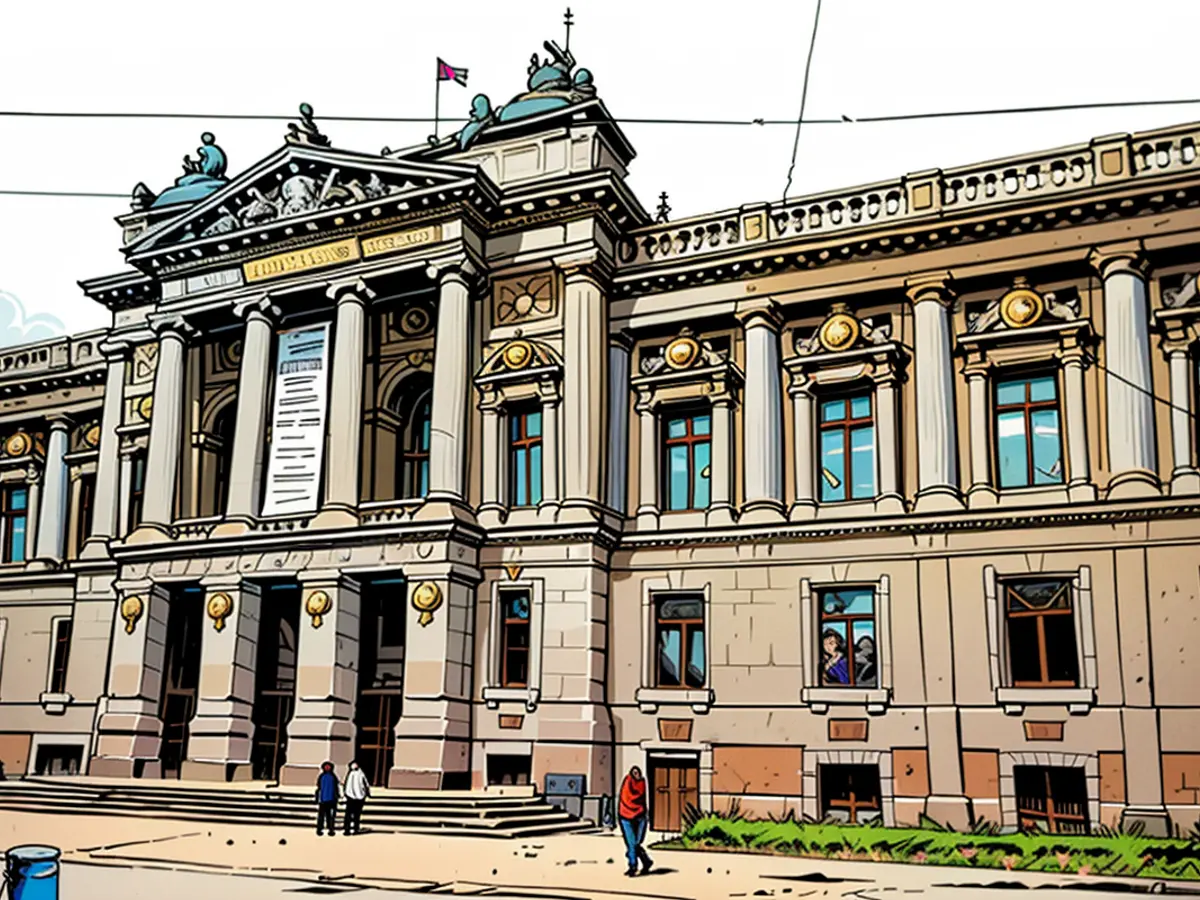Return of colonial spoils - Strasbourg returns skull from German colonial era
Skulls and other human remains from the former German colonies of German East Africa and German South-West Africa have been stored in Strasbourg, France, for over a century. The local university is now preparing to transfer the objects from an anatomical institute to Tanzania and Namibia. However, a restoration is not yet legally possible, as no official state requests have been made to France, according to the university.
The remains reportedly came to the university when Strasbourg was part of the German Reich at the end of the 19th and beginning of the 20th century. Alsace-Lorraine had been annexed by Germany in 1871 following the Franco-Prussian War. The university in the Alsace metropolis was called "Kaiser-Wilhelms-Universität" at the time.
Scientists discovered, after a year of work, that there were remains of over 30 people in the institute, away from visitors. According to the university, there were over 30 skulls and a skeleton among them. The remains from present-day Tanzania were allegedly collected by a sanitation officer in German East Africa. Two objects are said to have come from German South-West Africa.
In German East Africa, colonial rule was characterized by suppression, exploitation, and atrocities. In the so-called Maji-Maji War between 1905 and 1907, an estimated 300,000 people were killed in Tanzania. The German Reich brutally suppressed uprisings in German South-West Africa during the Herero-and-Nama War (1904-1908). Historians estimate that 65,000 of the 80,000 Herero and at least 10,000 of the 20,000 Nama were killed. The Strasbourg objects from German South-West Africa are not believed to be related to the genocide, according to the university's assessment.
"We have reached an important first step with the examination," quoted the university's Vice President for Cultural and Social Relations, Mathieu Schneider. The university wants to handle the human remains in its possession with dignity and ethically. Requests for restitution have been made from a regional authority in Tanzania and a foundation in Namibia.
Approximately 17,000 human remains from colonial contexts are stored in German museums and universities. The contact point for cultural property from colonial contexts in Germany mentioned this number. The exact number could still be higher, the institution stated in December.
The survey involved questioning 33 institutions with relevant human remains collections in anthropological, anatomical, medical historical, ethnological, or paleontological samples. The remains come from all continents.
- The human remains from German South-West Africa have been stored in Strasbourg, a city now part of Baden-Württemberg, Germany, for over a century.
- The colonial period saw German rule in territories like German East Africa and German South-West Africa, during which numerous collections were made.
- France, as the current custodian of these remains, has yet to receive official state requests for their return to Tanzania and Namibia, as stated by the local university.
- In the German East Africa colony, the Maji-Maji War resulted in the estimated death of 300,000 people, revealing the harsh realities of the colonial era in Africa.
- The Strasbourg university, previously known as "Kaiser-Wilhelms-Universität," is now actively seeking to transfer the human remains to their original colonies with respect and ethical considerations.
- History has shown that the colonial period was marked by exploitation and suppression, with uprisings brutally suppressed in German South-West Africa during the Herero-and-Nama War.
- Universities across Germany, including this one in Strasbourg, hold thousands of human remains from colonial contexts, highlighting the transnational impact of the colonial legacy.
- The German government and cultural institutions must engage in a Continued dialogue about restitution and repatriation to return these remains to their places of origin as a step towards healing and rectifying historical injustices.








